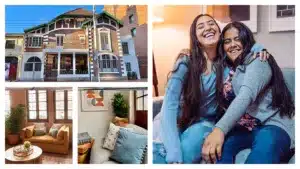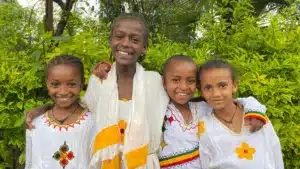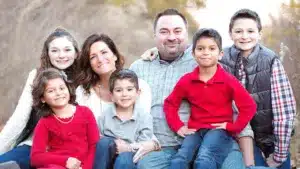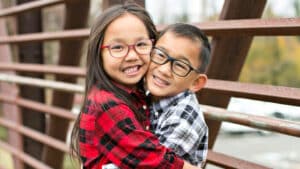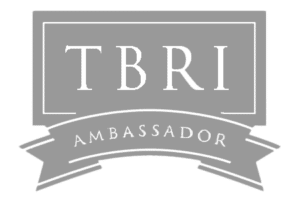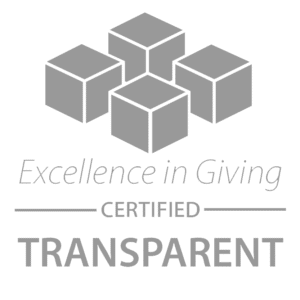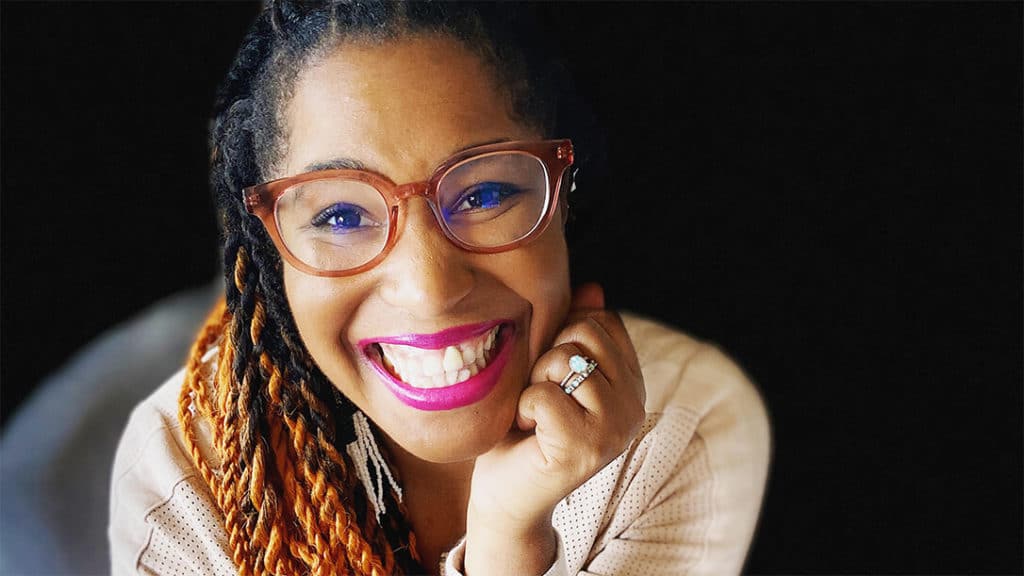
As a person of color and an adoptee who grew up in a transracial family, there are three things I wish my adoptive parents had known when they adopted me.
1. Unconditional Love Does Not Equal Racial Equity
I was adopted in 1992 when I was 4 years old into a Christian community that upheld colorblind ideology, or the concept that seeing race causes division. In my opinion, this posture is inherently problematic because it relies on a framework that denies inequity, structural racism, and systems of oppression. By insisting on refusing to see color, you also can’t see racism. And I have found that when colorblind ideology is held, practiced, and uplifted in these communities, it perpetuates problematic ‘norms’ and ill-equips white people to do the work of disrupting racism. It prevents leaders from modeling the tools we need for the transformative work of loving our neighbor that Christ calls us to do. Instead, many people stay quiet, afraid of saying the wrong thing or offending someone. They often hope if they pray about it, racist behaviors will go away. Unfortunately, that’s not the case, especially when we’re even afraid to name the problems explicitly. For example, we say, “don’t have a spirit of division” as opposed to “don’t be racist” because we don’t want to interrupt the peace. I like to counter with, whose peace are we interrupting, though? Someone’s peace is being disturbed with the current norms. And we can insist that it’s their peace we need to restore.
2. Failing Forward is Important
It’s hard to voice something that makes you uncomfortable and hold space for whatever comes back at you. It’s hard to receive new information and digest it without being defensive. But it’s important to model failing forward so that we can interrupt systems of oppression. I remain convinced that failing forward is the best way to equip children to dare to be changemakers. So, what does failing forward mean, and what does it look like? To me, failing forward means sometimes saying the wrong thing and then holding space for correction, no matter the mode of transmission. For example, what would happen if someone said, “You’re racist,” and you hold space for that, even if it hurts? And then use the information you received, because I believe that when people tell you you’re wrong, it’s a gift. It’s a gift to learn how to change and to fail forward. What would happen if we didn’t avoid hard spaces and instead recognize that we can try things differently and create space forward? That’s important to model to kids so they can dare to interrupt systems of oppression.
3. Adopted Children Are More Than Trauma
So often I look back at my childhood and see the trauma of broken and lost relationships. I see the trauma of a young Black girl struggling to find her identity. I see the trauma of heartbreak. I see the trauma created from the entitlement of strangers who saw my family, made sure I knew that I was different, and insisted on answers. I see the trauma of a gaslight culture where Black and Brown kids experience racism, come home, and their parents say, “maybe you misunderstood,” and the child doesn’t have the language or the tools to say, “No. I know racism on a visceral level.” I see that trauma. And this is what I want to say to adoptive parents:
Dear adoptive parents,
Your child is more than trauma. Your child is more than pain. Your child’s culture is more than trauma. Your child’s culture is more than pain. Uplift and celebrate their complexities and multiplicities. Black and Brown people are not monoliths. Tell the stories of our histories and include our joy makers, our scientists, our poets, our comedians, our dancers, our artists, our singers, our gymnasts, our creators, and ballerinas.
I wish my parents had adopted strategies that included representation. I wish they had thought explicitly about assessing the skills and education they had regarding racial equity and deepening that. I wish they had insisted on modeling hard conversations and failing forward so that I would not need to spearhead hard conversations with the extended and immediate family members. I wish they had thought about diversifying how they received information. I wish they questioned, why when we go to church, is it just white theologians? What would happen if we included other voices? What would happen if we included other voices outside of Black History Month, or included Black and Brown voices speaking not on trauma and pain, or included them outside of a current-events-driven knee-jerk “we need to make a statement” reaction? What would happen if we insisted on diversifying our social media feed? What would happen if we insisted that racial justice classes were not electives but general education requirements?
These are some of the things I wish my parents knew, and some of the ways that I wish I saw my parents use their voice.
Want to hear more from Bonita? Listen to her on our podcast, Together by AGCI.

